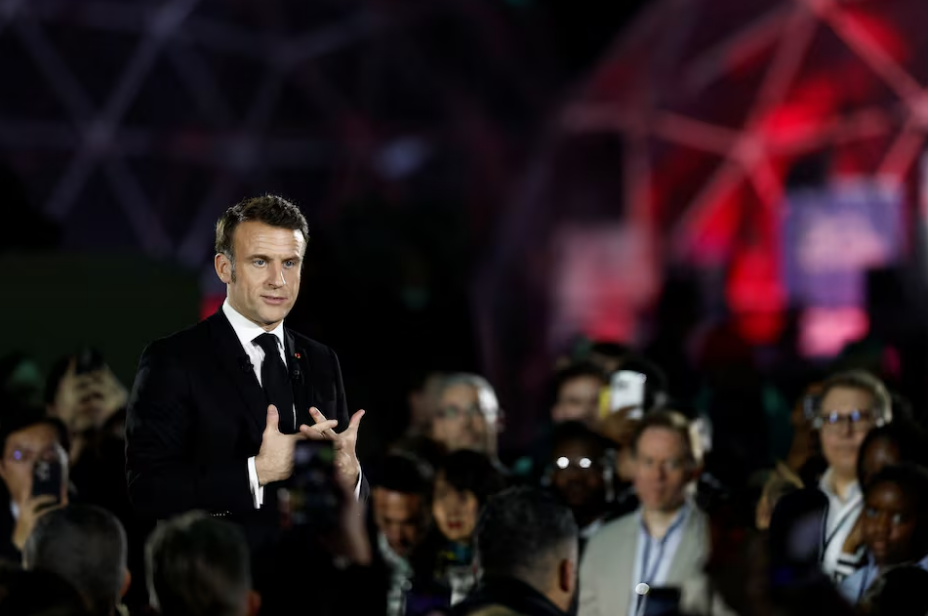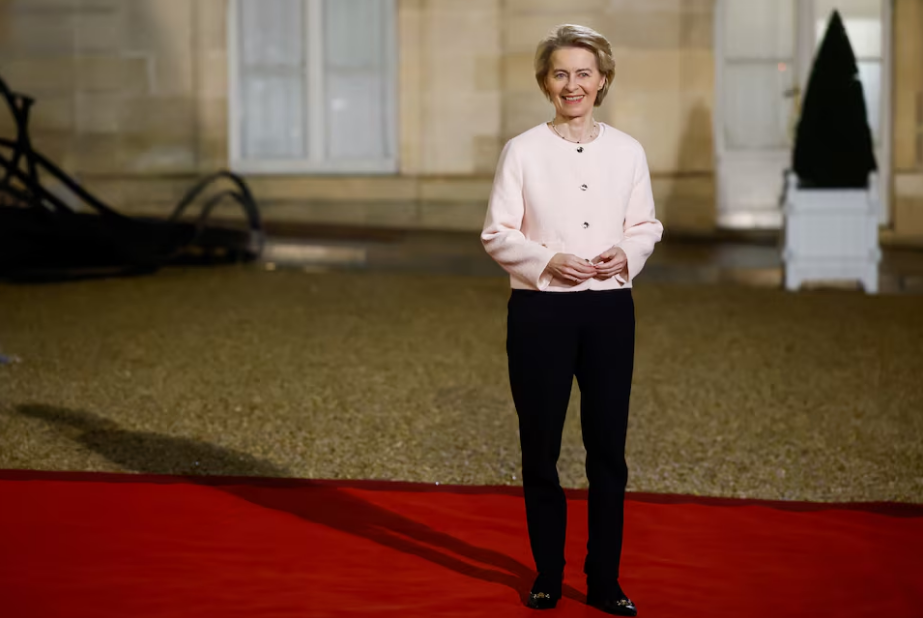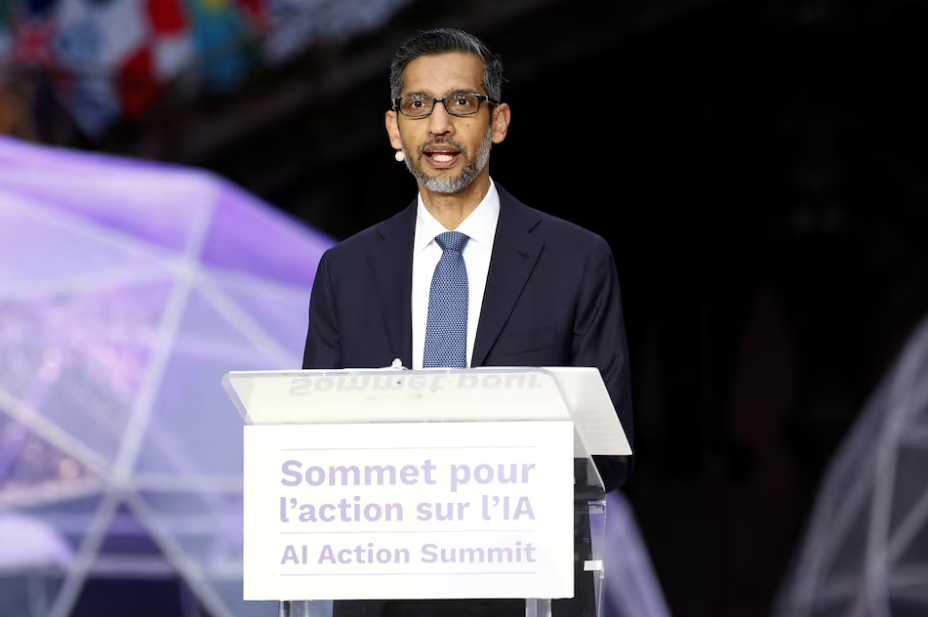World leaders gathered on Tuesday for the second day and plenary session of the Paris summit on artificial intelligence, as U.S. willingness to sign onto a statement championing sustainable AI remained in question.
Hours after President Emmanuel Macron declared France was in the AI race and Europe was eager for business, representatives of nearly 100 countries including China, India and the U.S. prepared to meet and determine if competing national interests could be reconciled. U.S. Vice President JD Vance is leading the American delegation.
Macron highlighted one difference on Monday night. When it comes to electricity, France would not adopt a "drill, baby, drill" approach, like U.S. oil production policy, but instead tap its clean power so companies could "plug, baby, plug" to meet AI's voracious power needs, he said.
|
|
| European Commission President Ursula von der Leyen arrives for a meeting with international investors in IA at the Elysee Palace as part of the Artificial Intelligence (AI) Action Summit in Paris, France, February 10, 2025. Photo: Reuters |
One topic of political alignment, however, was that 2025 was not the year to regulate AI anew. U.S. President Donald Trump has torn up his predecessor Joe Biden's AI guardrails and Europe has taken note.
According to Macron, European Commission President Ursula von der Leyen will announce on Tuesday a new AI strategy for the bloc that "will be a unique opportunity for Europe to accelerate, to simplify our regulations, to deepen the single market and to invest as well in computing capacities."
|
|
| Google CEO Sundar Pichai delivers a speech during the Artificial Intelligence (AI) Action Summit at the Grand Palais in Paris, France, February 10, 2025. Photo: Reuters |
German Chancellor Olaf Scholz had this message for guests at an AI summit dinner on Monday: "I urge European companies to join forces for a strong joint effort towards AI made in Europe," he said in prepared remarks seen by Reuters.
Executives were to gather for the event's Business Day, and OpenAI CEO Sam Altman was expected to address the summit. A consortium led by Elon Musk said on Monday it had offered $97.4 billion to buy the nonprofit controlling OpenAI.
It was unclear if the U.S. and other nations would embrace a draft summit statement circulated on January 30 that called for an “inclusive approach” to AI that is multi-stakeholder, human rights-based and bolsters the developing world.
The draft declaration, seen by Reuters, laid out priorities that included “avoiding market concentration” and “making AI sustainable for people and the planet.”
Vance's first international trip as U.S. vice president could still take a different focus.
Vance told Breitbart News he would use the occasion to discuss bringing the Russia-Ukraine conflict to a close, among other topics, the right-leaning U.S. media outlet reported. Reuters was not able to immediately verify the report.
























































